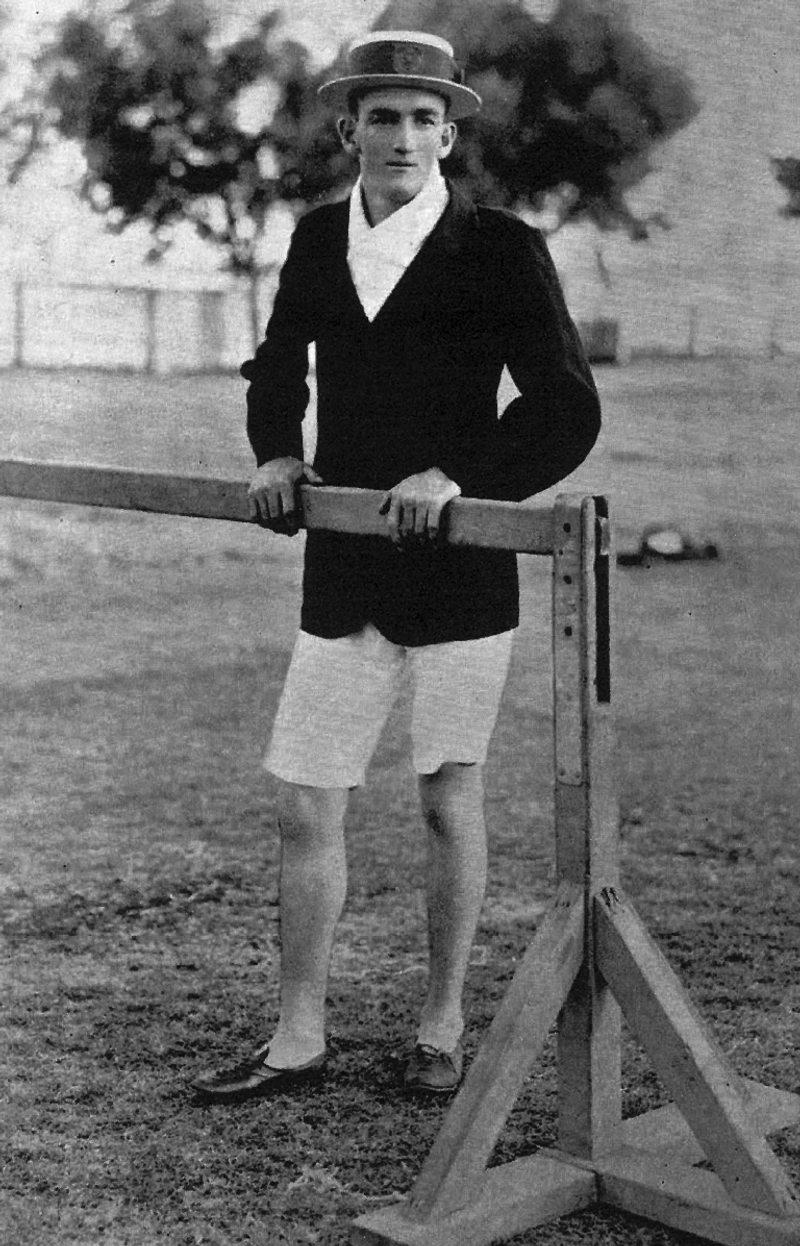Contact

Class of 1910
Derwas (or Dave, as he liked to be called) Cumming was born in Millicent in South Australia, the second of five children. He moved back to Perth where his father was born to run his mother’s farm, Yalkin in Doodlakline more than 200km east. Derwas was an outstanding athlete. He captained the College Cricket Club in 1909 ing year was named Champion Athlete at the combined athletics carnival of the Public Schools’ Association. He won the 100yd race, 220yd race, 440yd race, 120yd hurdles, high jump and long jump. Dave played football professionally at the age of 15 in the WAFL. He was so impressive on the field that newspaper reports written in 1941, long after he’d fallen in battle, cited him as WA’s best ever half-forward. He excelled on the sports field and was widely liked by all who knew him at school.
In 1911, Dave moved to Melbourne to study at Trinity College at the University of Melbourne and played two seasons for the University Football Club in the VFL. On returning to Perth in 1914, he enlisted in the Australian Imperial Force and played one last WAFL season.
Departing on the transport ship Medic, Dave was listed as a driver with the rank of private for the 1st Divisional Ammunition Column. After spending some time in Egypt he transferred to the 16th Battalion in October 1915 where he served at Gallipoli and on the Western Front. He was promoted to corporal and then to sergeant in November and December respectively of that year.
Dave was wounded in his arm as he wrote to his mother in action at the Battle of Pozières. He recovered in the UK and was promoted to lieutenant before returning to France. In 1917 he was promoted to captain and two months later he was awarded the Military Cross for Conspicuous Gallantry and Devotion to Duty. He received the Bar to the Military Cross the following year. It was said of him at the time: “he handled two companies with great ability and was greatly responsible for the final success”. He was also recommended for the Distinguished Service Order but did not receive the award, possibly due to his rank at the time.
Tragically he met his end in machine-gun fire on the field at the Second Battle of Villers-Bretonneux at Monument Wood at the young age of 26. His obituary in The West Australian noted that “this college has a heavy record of deaths among its most distinguished old boys” and named Lindsay Glowrey, Pinder Boor and Herbert Appel amongst his peers.


